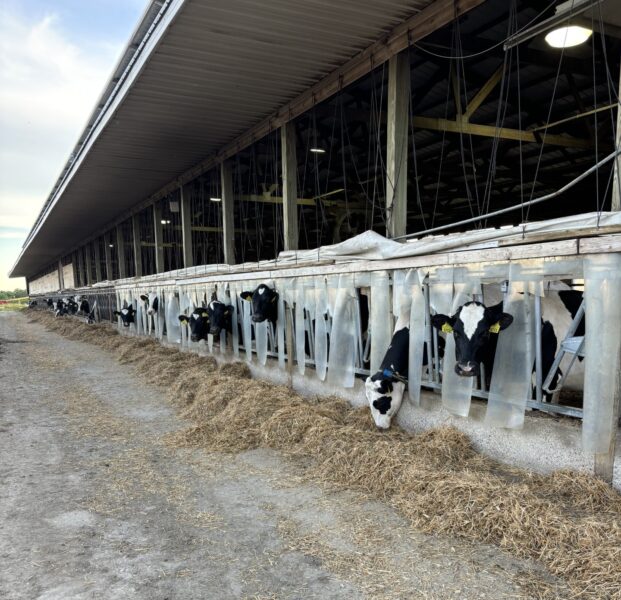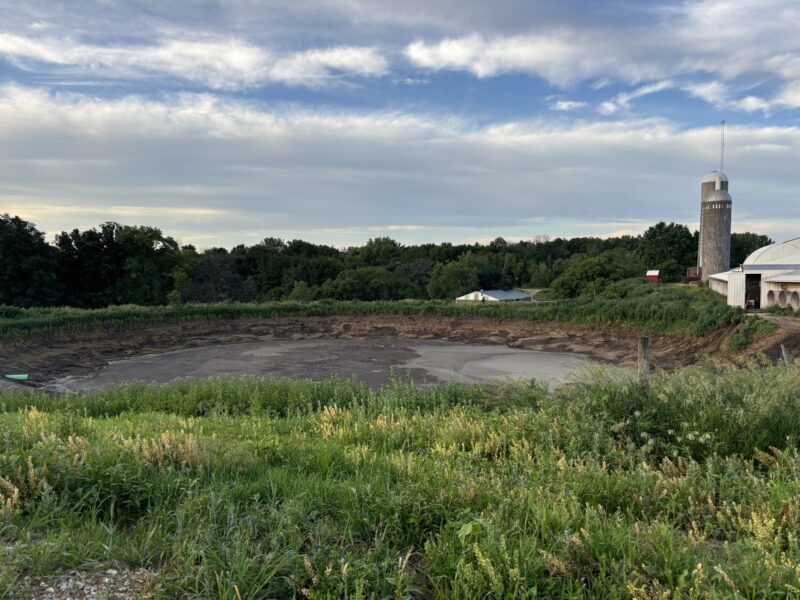Manure Management on Dairy Farms
By Halli Poppler, Communications and Marketing Intern
Have you ever wondered how dairy farms handle all the cow waste produced? Growing up on a dairy farm, I’ve often been asked this question. Dairy farmers utilize all their resources, including manure. Cow manure is an excellent fertilizer for fields as it contains essential nutrients like nitrogen, phosphorus, and potassium, which are crucial for crop growth. Manure management involves collecting, storing, and applying this organic material in a way that is best for the environment and the farm it comes from.

Cows eat a lot of feed, so they generate a significant amount of waste, making effective manure management crucial for farmers. Photo credit: Poppler Dairy- Waverly, MN
Why is Good Manure Management Important?
Effective manure management practices are essential for responsible land stewardship. By utilizing animal waste, farmers can increase productivity and profitability. Farmers can use resources they already have and save money on fertilizer costs.
Dairy farms do a great job of using proper manure management to protect local water quality and reducing the risk of nutrient runoff. This helps prevent the contamination of drinking water and supports the health of aquatic ecosystems. Manure management is carefully monitored and watched. Did you know farmers also have to follow certain standards on when and how to apply manure? How much manure they apply and the methods of application to ensure environmental safety are the big ones. According to Harlan Poppler, a dairy farmer, “It is not any farmer’s intention to wreck water quality. We live in the same community and use the same water.”
Well-managed manure application also improves soil health. Adding manure improves soil structure, increases organic matter, and helps promote beneficial microbial activity. These practices contribute to the long-term viability of agricultural fields.
Poppler Dairy’s Story of Manure Management
On our family’s dairy farm, Poppler Dairy, manure management has been a growing project. My dad, Harlan Poppler, has been working to make our manure management practices as productive and profitable as possible. Over the years, Harlan has learned what practices work best for him on his farm. Harlan emphasizes, “It is best to treat manure like a fertilizer, not just a waste product.”

Manure can be stored in large pits on dairy farms. When farmers are ready to utilize the manure on their fields it is emptied. Photo credit: Poppler Dairy- Waverly, MN
To optimize manure application, each field on our farm is soil sampled every three years. This sampling helps us determine the specific nutrient needs of each field, allowing us to distribute manure according to crop rotation requirements. We use two primary methods for manure application: hose dragging directly from the pit to the field and transporting manure via semi-trucks to fields farther away. Before spreading, we also sample the manure to assess its nutrient content. This allows us to determine what additional fertilizers might be needed to ensure our crops receive the necessary nutrients for optimal growth.
Manure management on dairy farms is a critical practice that transforms waste into a valuable resource. By efficiently collecting, storing, and applying cow manure, dairy farmers can enhance soil fertility and crop growth while reducing the need for chemical fertilizers. Effective manure management practices boost productivity and profitability and help the environment. Ultimately, manure management practices foster sustainable and long-term success, benefiting both the dairy farmers and the environment.